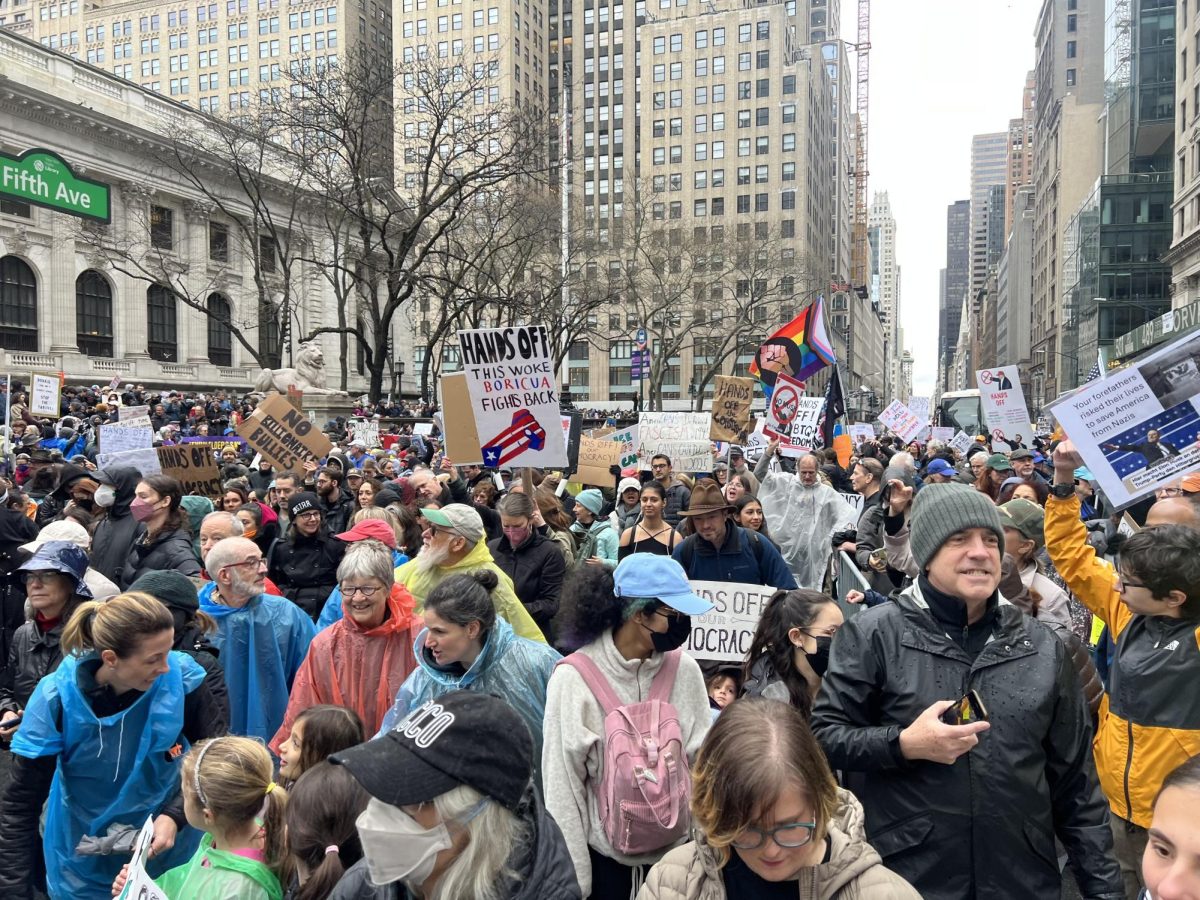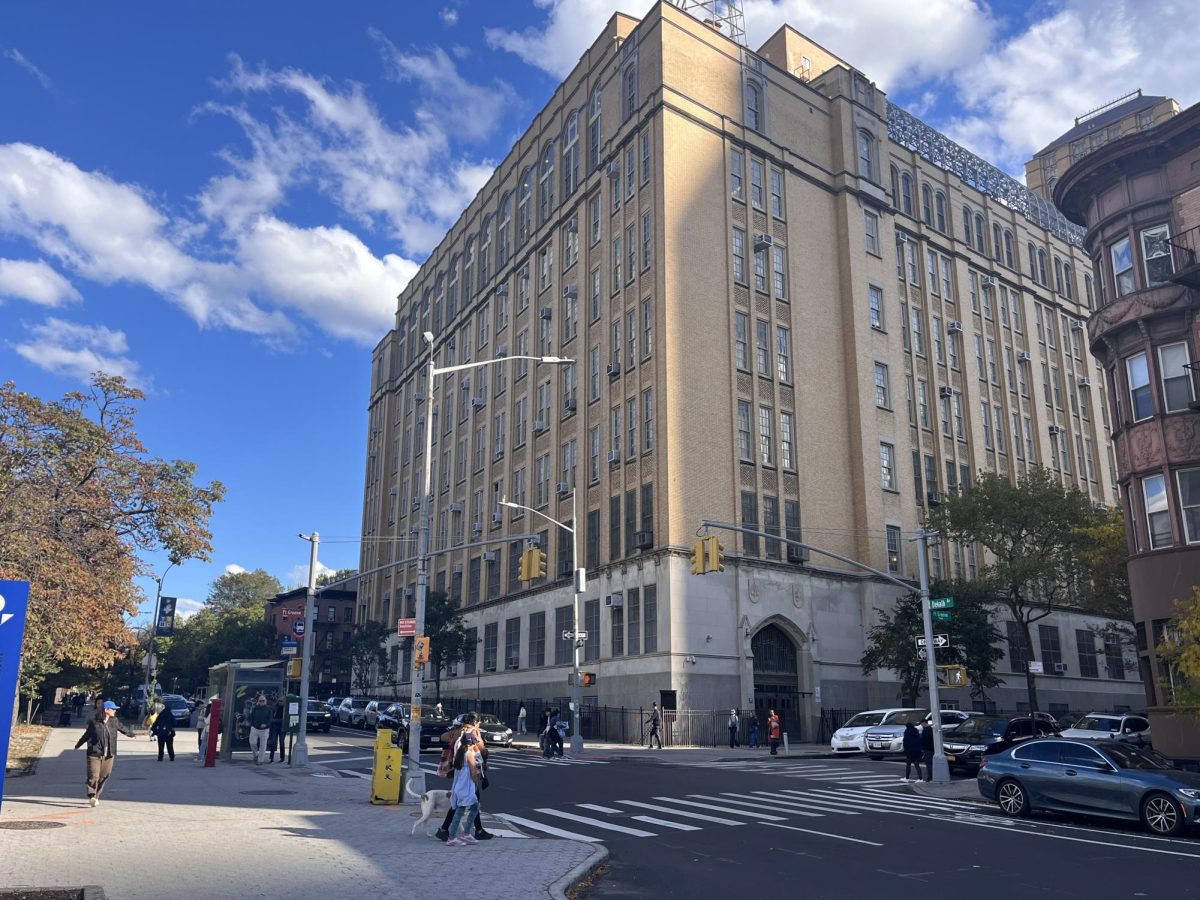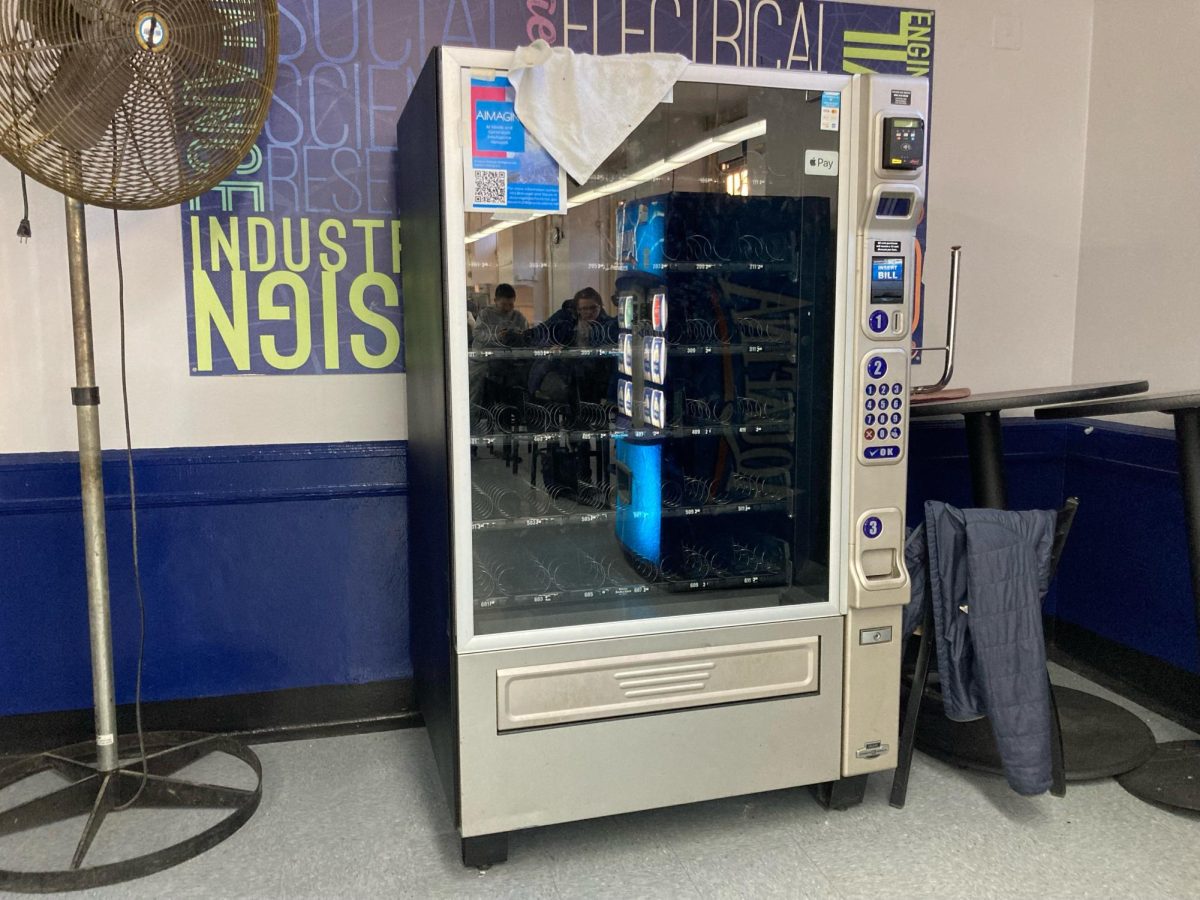On Monday, November 13th, the school posted a letter from K&D Vending on the newly empty vending machines. The letter explained that after 40 years of serving Department of Education (DOE) schools, the K&D Vending family had been “advised by the Office of School Food and Nutrition” that there “would be no vending machines for the rest of the 2023-2024 school year.”
The DOE’s current nutritional standards have been in place since 2010 but were not enforced until this year, leaving a 13-year window where NYC public school vending machines were not up to standard. According to the DOE’s A-812 regulation, “only foods and beverages approved by the Office of School Food and/or purchased through central contracts may be sold to pupils during prescribed times within the school day.” The approved foods and beverages are limited to Sunchips, Baked Lays, sparkling water, Aquafina, and Poland Spring water, but Tech’s vending machines contained Pop Tarts, Goldfish crackers, Doritos, and Gatorade, among other unapproved snacks and drinks.
A week before the official notice was posted, Civil Engineering major Andy Chen (‘25) noticed the machines were empty and took it upon himself to call K&D vending. The company told him that School Foods, the division of the DOE that oversees school lunches and snacks, ordered K&D Vending to remove the machines. Chen found out that “all the machines they use are equipped [with] timers that will lock out the machine and prevent the machine from being used by students during breakfast and lunch periods.” The A-812 regulation requires the vending machine contractor, in this case, K&D Vending, to activate these locks to keep students from opting for vending machine snacks in place of school lunch, which is supposed to be the healthier option. However, the school was not utilizing these locks, meaning that students were able to access these snacks outside of their designated time frames.
According to K&D Vending, the removal of these vending machines is a citywide policy, meaning all NYC public schools using K&D machines will have them removed in the near future. The DOE has yet to explain whether the machines are permanently gone, or will be replaced and filled with DOE-approved snacks.
With the loss of the vending machines, there will be a loss to the “available revenue” from the profits made from vending machine purchases going into “General School Funds and Cash Transactions,” taking away from the school’s funding. “It’s a big impact on the company, but a bigger impact on the schools,” said the Refunds and Service Coordinator of K&D Vending.
The sudden cancellation of the contract with K&D Vending with no explanation angered many Tech staff and students. When the DOE’s reasoning reached social media, many students expressed their discontent. According to a recent poll, 71% of students said they were upset, 27% did not care, and 3% were happy about the decision. “[Their] removal is a very big source of inconvenience,” said Law and Society major Dylon Van Ganderen (‘25).
Chen feels that removing the vending machines will not solve the problem of students’ consumption of unhealthy foods, but only make them less accessible in the school building. “Kids go to the deli anywhere to buy snacks, or outside of school they have access to all these corner stores that they could get unhealthy snacks from,” said Chen.
Law and Society major Darien Moore (‘25) feels that the high prices of the snacks acted as a deterrent and believes that there was merit to the decision. “The snacks are overpriced anyway,” he said, contending that most students are more likely to choose a free school lunch over expensive vending machine snacks.
Some teachers welcomed the removal of the vending machines and the distractions they caused. “I didn’t like the vending machines because of where they were, not the vending machines in theory,” said Social Studies teacher Sean McManamon who used to teach in 6E4, two doors down from the vending machines. He explained that as snacks dropped down they would make loud and disruptive noises. Students often gathered by vending machines which created lines, causing noise and obstructing space for the nearby classrooms.
Other staff in the building feel that the vending machines are necessary for students. Guidance counselor and 9th grade social worker, Ms. Tracyavon Ford, noted that snacks are essential sources of energy for students who have early or late lunches, or no lunch at all. “If you’re not going to have reasonable times for students to have food, you need to bring back vending machines.” As a mental health professional, Ms. Ford believes that students not only need breaks for their brains throughout the day, but for their stomachs as well.
Now that the snacks are gone, the DOE’s next step is the physical removal of the machines themselves. No matter where one might stand on their removal, Tech’s vending machines are gone for the foreseeable future.









































